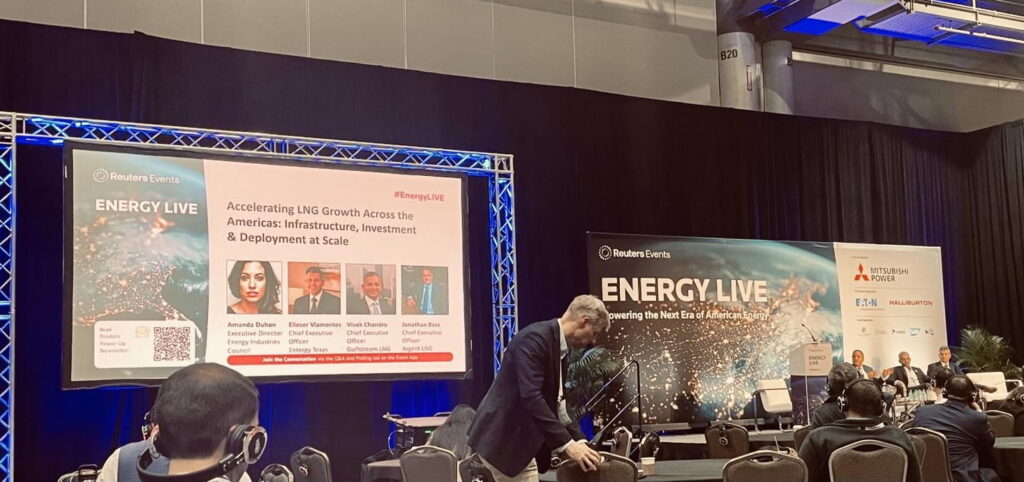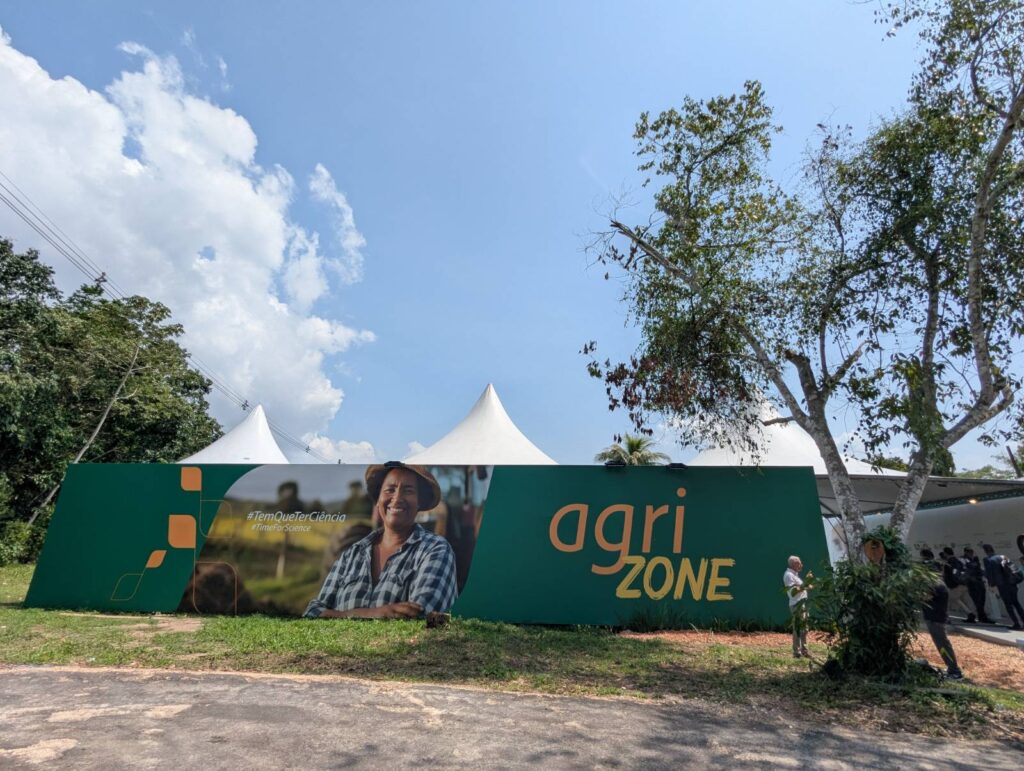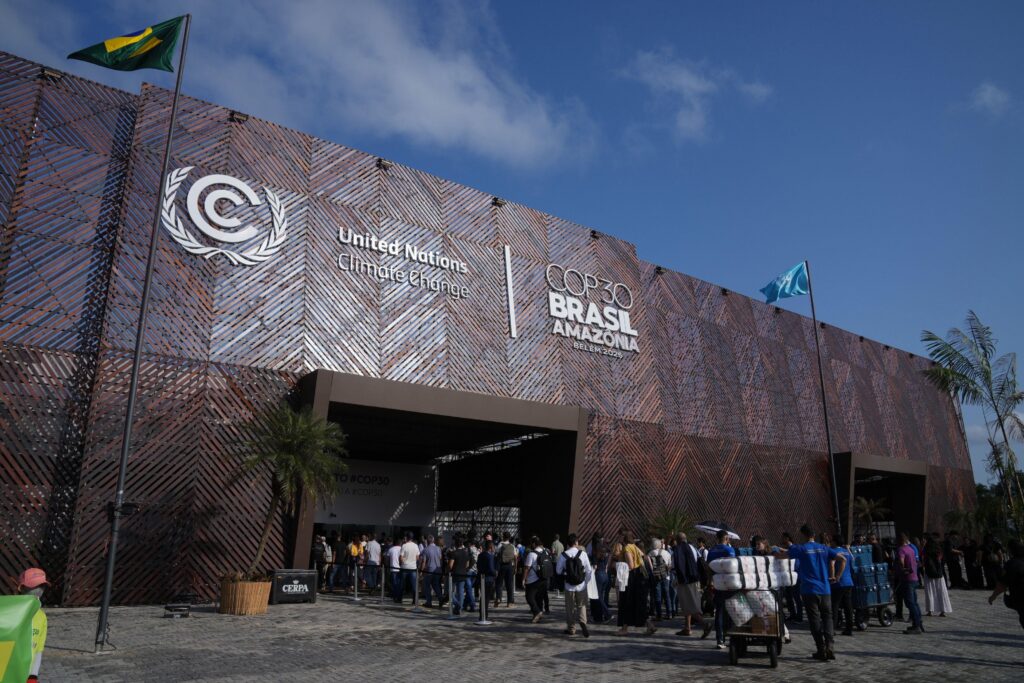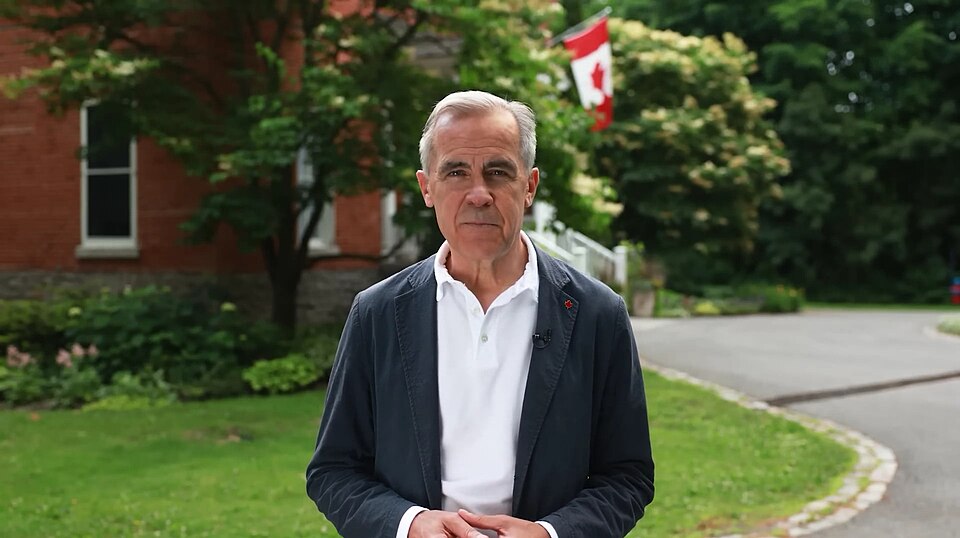EU grant money was used to fund a media workshop on plastic pollution that was run in partnership with a fossil fuel lobby group, DeSmog can reveal.
The event, held in May, came at a crucial time – just months before the start of the latest UN Global Plastics Treaty negotiations. The latest round, running from 5 to 14 August, hopes to create the world’s first legally binding agreement on plastic waste.
The Asia-Europe Foundation (ASEF) assembled 21 journalists from 20 countries, including the authors of this article, in Singapore for a four-day workshop that promised to facilitate “a deeper understanding among journalists of the challenges and responses to managing plastic waste.”
Global plastic pollution is projected to hit 460 million tonnes by 2025 and campaigners have urged world leaders to “provide global rules that will control the amount of plastics being produced” and “protect human health, biodiversity, and the environment from harmful chemicals.”
The workshop was funded from a €1.5 million three-year EU grant, and a €270,000 grant from Denmark’s Ministry of Foreign Affairs.
In organising the workshop, ASEF partnered with the Alliance to End Plastic Waste (AEPW) – a non-profit whose members include major oil and petrochemical companies such as Shell, ExxonMobil, and TotalEnergies.
The Alliance was founded in 2019 by the American Chemistry Council (ACC), a major plastics trade association, to “change the conversation away from short-term simplistic bans of plastic”, according to an Unearthed investigation.
Fossil fuel firms manufacture the base chemicals used in plastic products, seen as a major growth market by the industry.
The AEPW has long been accused of serving as a PR vehicle for petrochemical companies. Despite pledging in 2019 to invest $1.5 billion and remove 15 million tonnes of plastic waste in five years, the AEPW has invested only $445.13 million and collected just 240,000 tonnes of waste. Meanwhile, the oil and gas industry plans hundreds of billions in new plastic production facilities.
Subscribe to our newsletter
Stay up to date with DeSmog news and alerts
The AEPW heavily influenced the workshop’s programme, with one of the introductory speakers coming from the group.
AEPW representatives dominated multiple sessions, while several of its grantees and partners filled speaking slots. Thomas Chhoa, a senior advisor to AEPW’s CEO, and Yash Mishra, the group’s head of impact finance, appeared alongside Alliance partners like Greencore, which buys plastic waste and turns it into recycled pellets.
At an event ostensibly about plastic waste, none of the speakers was heard mentioning the need to reduce plastic production – the core issue driving the crisis.
Beatriz Santos, an associate editor at the trade magazine Sustainable Plastics, and a participant in the workshop, emphasised: “Almost no company will tell you that you have to reduce plastic production. I think this is always a problem in discussions where the industry is involved.”
In response to DeSmog, the AEPW claimed it “had minimal input into the agenda and individual presentations” and that “ultimately the choice of the speakers was the foundation’s”. However, the Alliance acknowledged that it put ASEF in touch “with third parties” when asked.
The AEPW said that it supported the event by “paying for logistics” and providing “some manpower in running the workshop” because “the objectives of the workshop are aligned with our organisation’s purpose”.
The Plastics Lobby
The oil industry has a powerful voice in plastics negotiations. Its lobbyists have flooded UN treaty negotiations in numbers that dwarf some national delegations, and have embedded themselves as official representatives within delegations from countries including China, Egypt, and Finland.
Meanwhile, environmental non-profits and indigenous groups have reported being systematically marginalised from discussions that will shape global plastics policy.
Big oil’s lobbying efforts have centred on opposing proposals to cap plastic production, instead advocating for a focus on waste management, which involves collecting and disposing of plastic materials.
It even leverages mainstream media outlets to spread this message. In July 2025, Politico published a sponsored piece from the AEPW, promoting a “circular economy for plastics” centred on improved waste management and recycling rates, while avoiding any mention of plastic production.
This was reflected at the Singapore workshop, where sessions focused on recycling improvements and waste management solutions. There was no discussion about the fact that plastics can only be recycled five to seven times before becoming unusable, or that most plastic never gets recycled. The authors of this article only heard one speaker say that burning plastics – a favoured waste management solution of the industry – isn’t actually recycling.
Lei Wei Soon, a reporter from Malaysia, said that certain parts of the workshop felt “business-oriented” and would have been better replaced with “insights or experiences shared by local journalists who have reported on plastic waste and environmental issues.”
The AEPW told DeSmog that its promise to invest $1.5 billion included pledges from member companies to “invest into their own sustainability projects connected to our mission.” The Alliance noted, however, that it has since stopped counting total investments from all its members, as it cannot “accurately verify and assure” that the pledges are used for projects that meet its standards.
Addressing the shortfall in waste removal targets set in 2019, the AEPW acknowledged that it had been “enthusiastic” but had not “fully understood the complexity of building integrated waste management systems in underserved regions, where these systems do not exist”. It added that it had learned “an important and valuable lesson in setting realistic goals”.
Asked whether it viewed the Alliance’s involvement in the workshop as problematic, ASEF defended the partnership, calling the group “a useful supporter, given its knowledge and experience in helping communities manage plastic waste in many parts of the world.”
The EU knew of AEPW’s involvement from the funding application stage but did not intervene. An EU official confirmed that Brussels had been informed of the Alliance’s involvement “to support the workshop”, noting that “the project proposal included a reference to ASEF approaching the non-profit AEPW, which has an office in Singapore.”
Pressed on whether it would hold ASEF accountable for allowing an industry-aligned body to influence a taxpayer-funded programme, the European Commission deflected entirely, saying only that it would forward any feedback to ASEF.
The Danish Foreign Ministry declined to respond on the record to any of DeSmog’s questions.
Subscribe to our newsletter
Stay up to date with DeSmog news and alerts






